Report: Some Fish At Critically Low Levels
Historically abundant predatory fish such as groupers and snappers remain at critically low numbers on Bermuda’s reefs based on international standards, according to a recently released report that monitored their status and trends by Bermudian scientist Dr Thaddeus Murdoch and his local team of research associates through the Bermuda Reef Ecosystem Assessment and Mapping [BREAM] Programme.
A spokesperson said, “As a consequence, coral-killing damselfish, which are eaten by groupers and snappers, have doubled in abundance within the lagoon since 2010, reducing the quality of reefs across an area bigger than the landmass of Bermuda.”
“In good news, however, hard corals so far remain at good levels across most reefs, and the protected parrotfish, important for keeping marine plants under control and for making beach sand, remain in high numbers.
“The report, Status and Trends of Bermuda Reefs and Fishes: 2016 Report Card, is available at BermudaBREAM.org.”
“The report describes baseline information collected from 2004 to 2011, and compared to updated data collected by resurveying reefs in 2015 and again in 2016 by Dr. Murdoch and his team of local and international scientists and graduate students. The BREAM team, as the Bermuda component of a cross-Caribbean monitoring programme of the Global Coral Reef Monitoring Network, measured the amount of corals, marine plants, plant-eating fishes and predatory fishes at 38 reefs located across all of Bermuda’s reef habitats.
“Funding and support for the research was provided by: XL Catlin, the Bermuda Zoological Society, Murdoch Marine Ltd and the Gosling family. Partner Re; the Overseas Territories Environmental Programme Fund at the UK Foreign & Commonwealth Office; the Bermuda Government; and the Stempel Foundation provided support for the baseline data collected in 2004 to 2011.”
“The entire Bermuda reef platform was divided into four areas: the inner lagoon, the outer lagoon, the rim reef which surrounds the lagoon, and the 10-m forereef which is exposed to the open ocean. The entire platform was also considered as a unified whole.
“The BREAM report provides clear evidence that the cover of corals remains high at rim and foreereef locations, but is lower within the lagoon and particularly at nearshore reefs where marine plants are overly abundant and plant-eating fishes are scarce. Predatory and plant-eating fishes are critical to maintaining healthy reefs.”
“Dr. Thad Murdoch believes the loss of predatory fishes remains a cause for alarm. He said: “Large predators like black grouper carry out important work by managing the numbers of small and large parrotfish that live on the reef. Smaller predatory fishes such as red hind, coney and grey snappers do so much more than just provide a source of food, as they keep coral-killing damselfish from increasing and causing damage to reefs.
“Bermuda’s coral reefs protect the Island, give us food, and provide exciting experiences for locals and tourists alike. However, our reefs, along with those across the world, face destruction from an increasingly acidic ocean and increasingly violent storms. Our reefs can face these serious threats, but only when predatory fishes like grouper and snapper, as well as plant-eating fish like parrotfish and surgeonfish, are abundant, marine seaweeds are sparse, and hard corals are healthy.”
“Commercial and recreational fishing annually constitute only a very small portion of economic value generated by the services provided by Bermuda’s coral reefs to our society. However, we oversee the condition of our reefs as if they are primarily a fisheries concern. Reef condition is really a tourism and coastal protection issue, and should be managed accordingly.”
“According to Dr. Thad Murdoch, Bermuda can restore predatory fish populations by restricting the rate at which commercial and recreational fishers catch groupers and snappers, limiting the sale of key predatory fishes during their spawning season, expanding the seasonal prohibition and extent of protected spawning areas where necessary, and enhancing marine resource enforcement.
“Our centuries-old Bermuda reef fishery, and the multigenerational livelihoods that it provides, can only persist if we maintain the numbers of our breeding groupers and snappers. Marine protected areas are one way to invest in our reefs, and they provide a valuable return in the form of a constant supply of fish that leave the protected areas and move to aresas we we can catch and eat them.”
“In conclusion, Dr. Murdoch pointed out that if we ignore the critical loss of predatory fishes on our reefs, it is highly likely that our coral reefs will erode away. He said: “If we fail to protect our fish and coral reefs, then bigger waves will hit the shore, and our beaches will change from pink sand to rocky rubble.”
“Dr. Murdoch will provide public presentations of his research in the near future.
“To learn more about the BREAM programme, and to view the 2016 reef status and trends report in full, visit BermudaBREAM.org.”
The full Status and Trends of Bermuda Reefs and Fishes 2016 Report Card follows below [PDF here]:
Read More About
Category: All, Environment, News

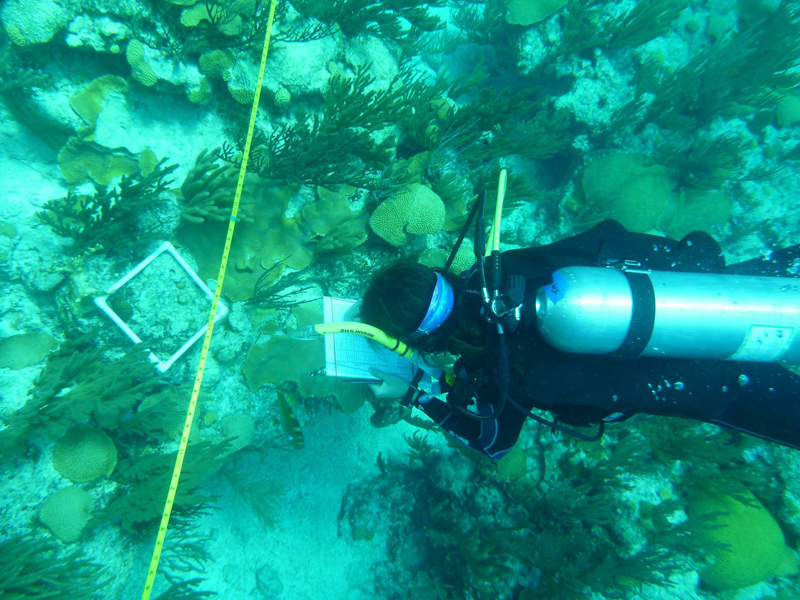
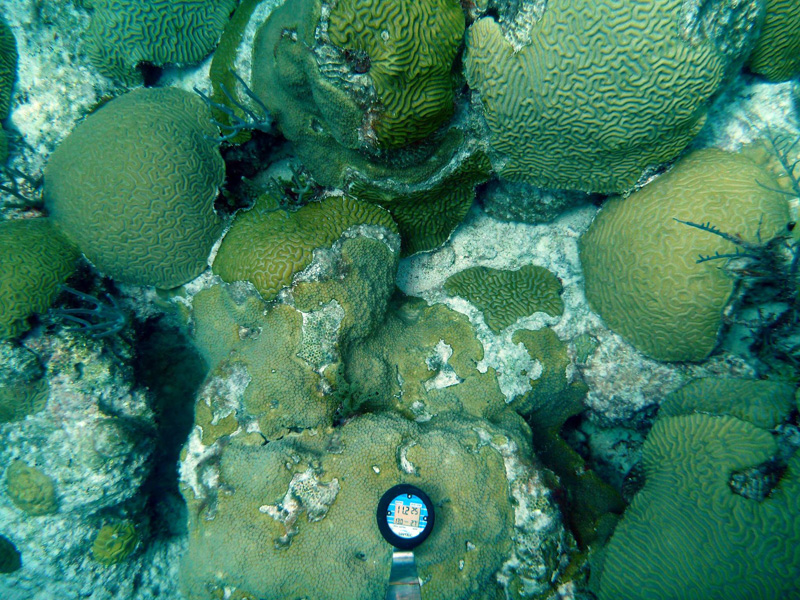
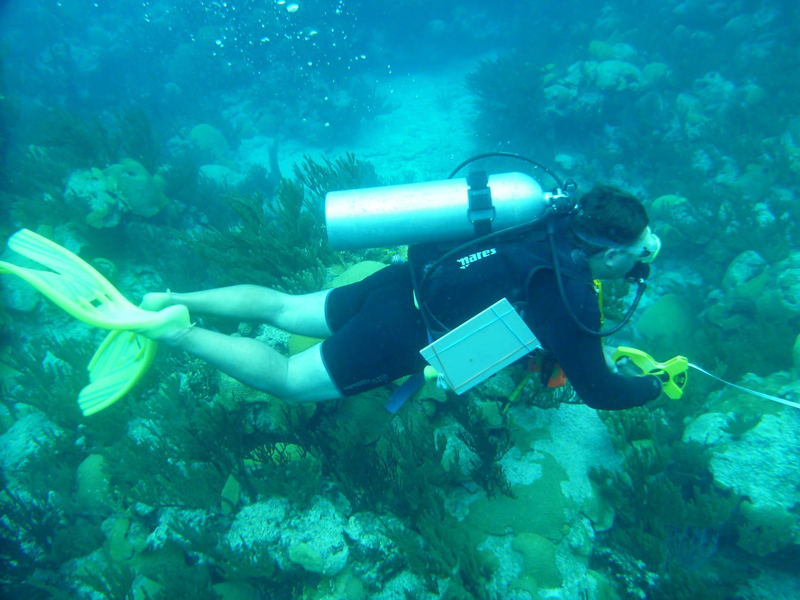
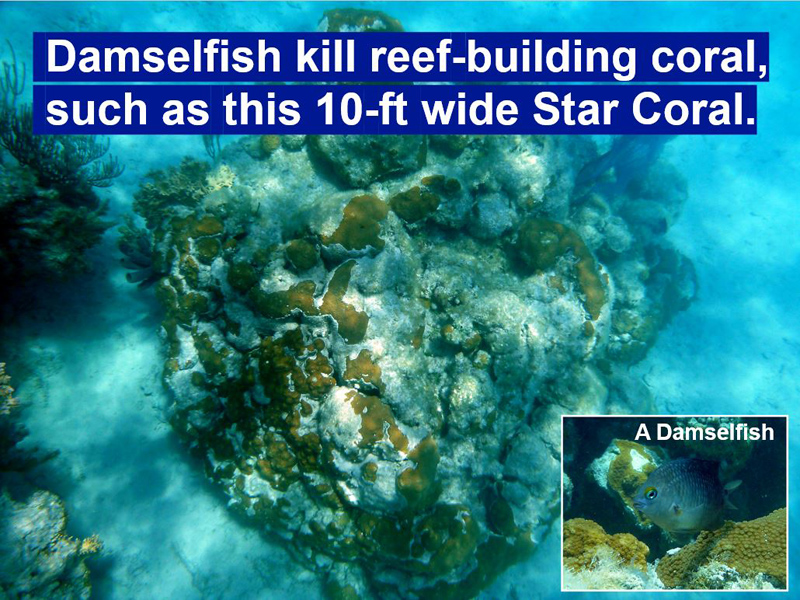
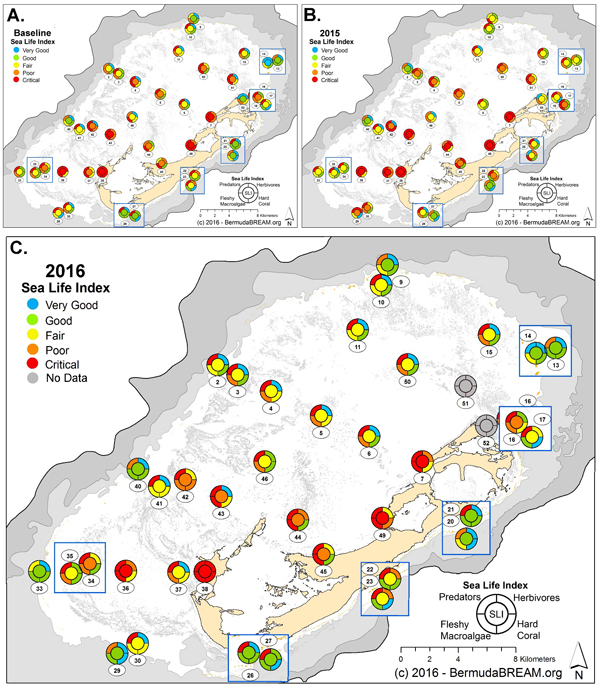

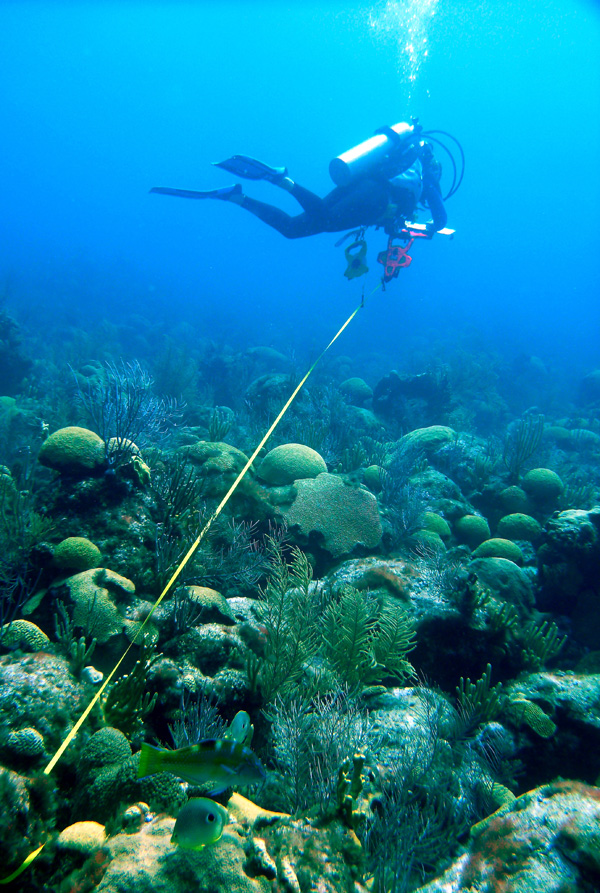


How much of this is a direct impact of Lion Fish and rising Ocean temperatures?
All of that to tell us that the fishermen are over fishing and charging ex prices.
Gives a new meaning to you get what you pay for.
Greed.
Bravo …. one of the most extensive and visually interesting reports I’ve seen locally in a very long time !
I Think your right its a great report and sorry to see that our fish our not over abundant.
It would be good to gather statistics on the fishing of the smaller reef and shallow depth fish.
It would appear that the international workers are over fishing on the docks and bridges.
The natural order would show that if there are no smaller fish for the bigger fish to feed off of then the number of larger fish will diminish.
All that to say we need to outlaw bridge fishing as these persons are feeding themselves and families with our slippery dicks and white grunts etc.
Countries have lost marine eco systems from over fishing and disrupting the marine life cycle.
We need our dock and shallow reef fish.
Name not hidden….
Curtis Richardson
Well it dont take no rocket scientist….. put a stop to the fishermen who go out in boats! End of story. Not complicated. Not fishing off the rocks, because you cannot catch snappers and groupers off the rocks. I been fishing years off rocks and catch boring fish. It is the people on boats who are depleting them.
Also you genius environment people, do you know what the natural predator of the Lion Fish is??? (drumroll and awe sound)… it is the Giant Green Moray Eel… and we have ‘em don’t we? Don’t take no rocket scientist to figure the answer to that puzzle! Stop killing everything!
So you r saying that if u want to eat fish, ur gonna have to pay for it? Um no. If i have the abilty to go out and catch my own food, im going to. How abt instead of stopping us responsible fishermen from going out and hauling a reasonable catch, you burn the guys who go out there and catch a boat load for no reason other than to catch it. Set a limit and leave it be. We live on an island. We are entitled to catch our own food. I sure as hell am not gonna be forced to pay for fresh (freezer) fish. And u say you cant catch snappers off the rocks?! Where do you fish? Ever heard of a grey dog? Or are those not snappers? Rockfish maybe? Or are those not groupers?
How about putting a bag limit on “weekend warrior ” people who have other jobs during the week and go out on days off and catch 50,60,150 silk snappers or 10,20,25 wahoos and tunas? How about we get a fisheries department with wardens that actually go put on the water and do their jobs? How about you police the lobster divers from taking over their 2 per person per day limit?
Ann Cartwright Decouto was on the ball 20 plus years ago……go figure
Watch out the present govt might bring back fish pots